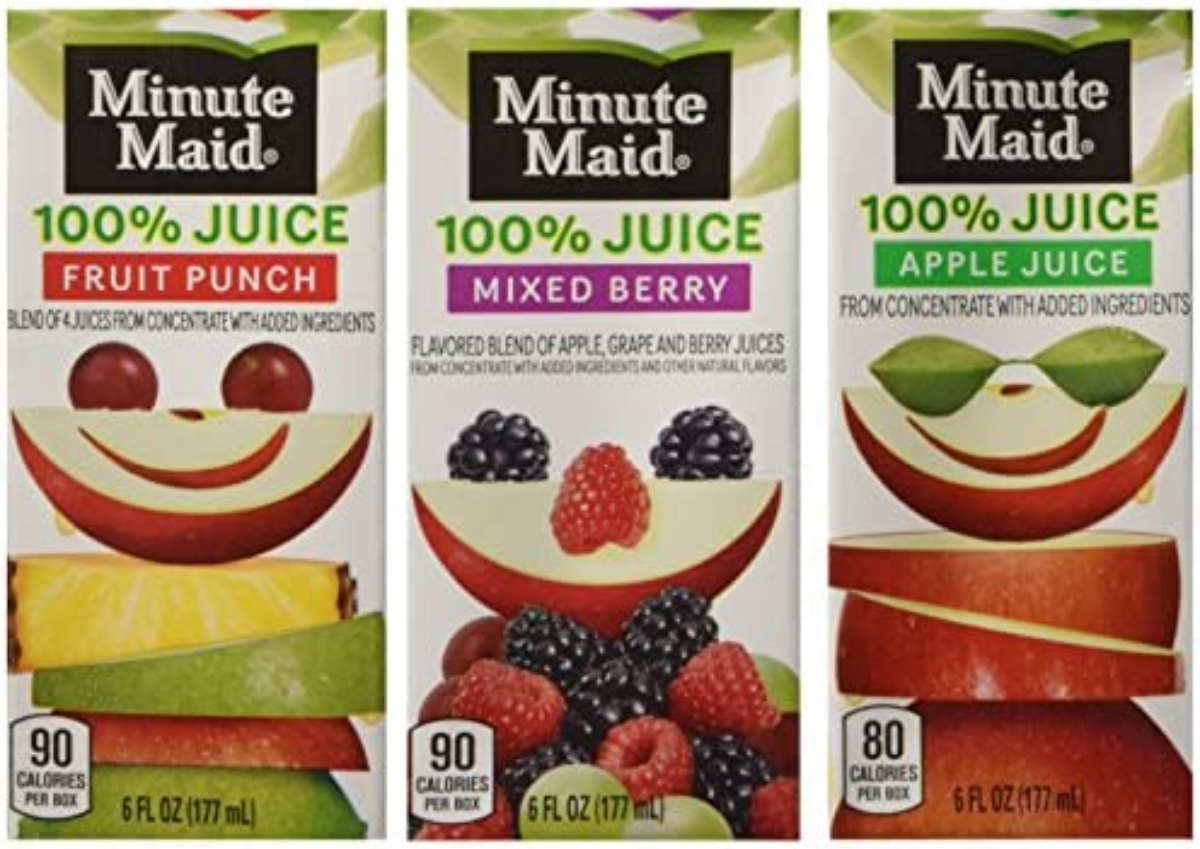Lawsuit Challenges Minute Maid Juice Box Health Claims
Coca-Cola Co. is accused of misleading consumers who are looking for a healthful beverage.

Coca-Cola markets its Minute Maid juice boxes with the claim that the drinks are "Good For You!" But a class action lawsuit says the claim is misleading, because the sugar in the drinks can increase the risk of heart diseases, metabolic syndrome and diabetes.
The complaint alleges that, health claims notwithstanding, each box “contains between 19g and 21g of free sugar, constituting 80% to nearly 100% of each Juice Box’s calories.”
The Minute Maid juice boxes come in various flavors, including Apple, Apple White Grape, Mixed Berry, Fruit Punch, and Lemonade, and possibly others. They normally come in packs of eight six-ounce boxes.
How can fruit be unhealthy?
While eating whole fruit can “have a protective effect regarding diabetes,” the complaint argues that drinking juice can increase the risk of diabetes and other diseases because “processing intact fruit destroys the fruits’ natural food matrix thereby concentrating and releasing the fruit’s sugar” which gets absorbed very quickly into the body.
The complaint alleges that Coca-Cola’s statements on the juice boxes are misleading and take advantage of consumers’ misconception that juices are as healthy a whole fruit.
Sugar, sugar
Public health officials caution against excessive intake of sugary drinks.
"As a category, these beverages are the single largest source of calories and added sugar in the U.S. diet. In other parts of the world, particularly developing countries, sugary drink consumption is rising dramatically due to widespread urbanization and beverage marketing," according to the Harvard T.H. Chan School of Public Health.
"When it comes to ranking beverages best for our health, sugary drinks fall at the bottom of the list because they provide so many calories and virtually no other nutrients. People who drink sugary beverages do not feel as full as if they had eaten the same calories from solid food, and research indicates they also don’t compensate for the high caloric content of these beverages by eating less food," according to the Chan website.
The Centers for Disease Control and Prevention (CDC) advises that frequently drinking sugar-sweetened beverages is associated with weight gain, obesity, type 2 diabetes, heart disease, kidney diseases, non-alcoholic liver disease, tooth decay and cavities, and gout, a type of arthritis.
